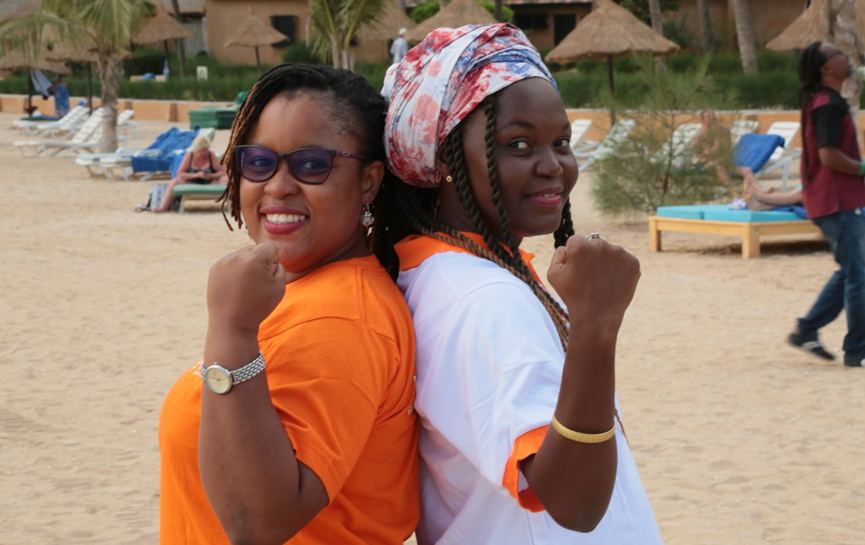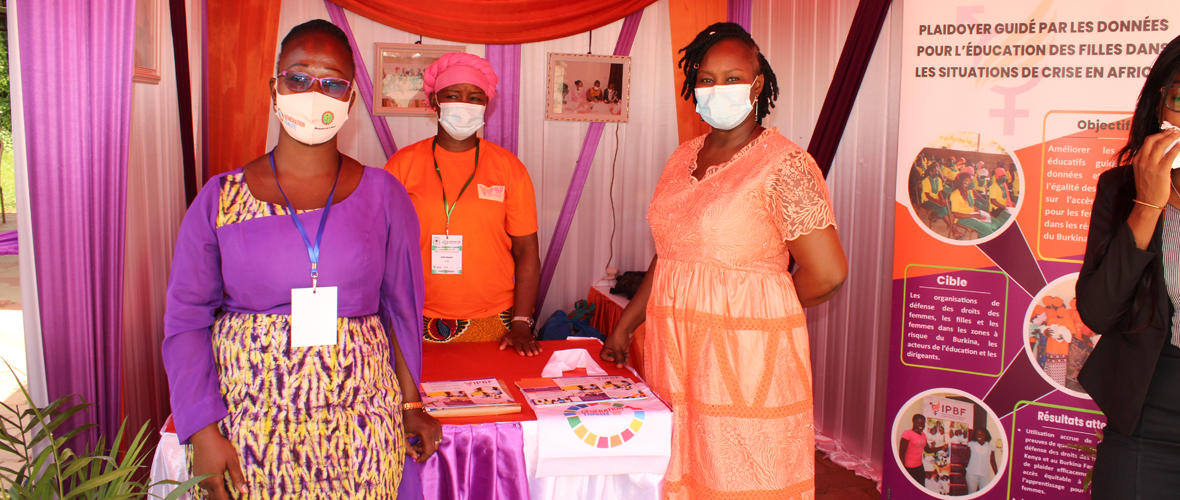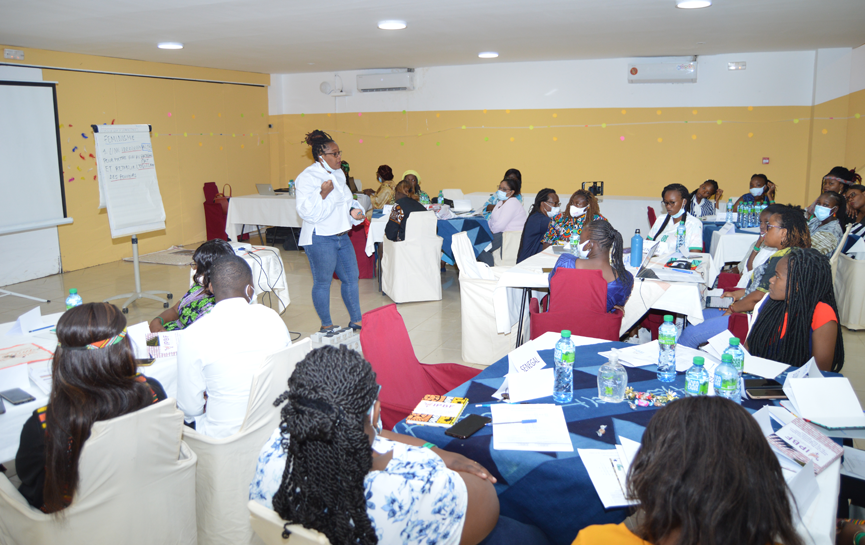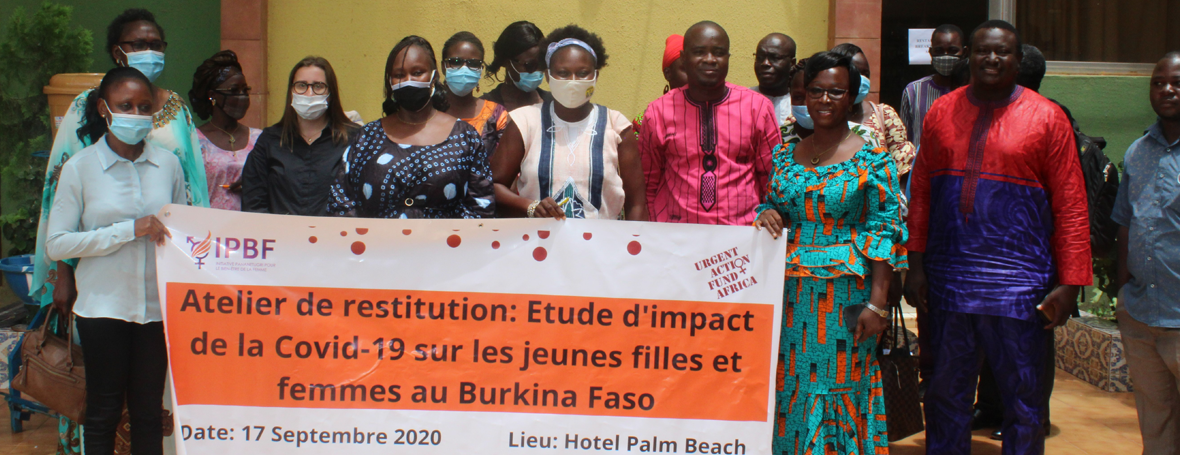- What We Do
Warning: Use of undefined constant ICL_LANGUAGE_CODE - assumed 'ICL_LANGUAGE_CODE' (this will throw an Error in a future version of PHP) in /home/clients/2e3679015bc164eeee89639d610f2257/sites/ongipbf.org/wp-content/themes/ipbf/includes/functions/functions.php on line 269
Warning: Use of undefined constant ICL_LANGUAGE_CODE - assumed 'ICL_LANGUAGE_CODE' (this will throw an Error in a future version of PHP) in /home/clients/2e3679015bc164eeee89639d610f2257/sites/ongipbf.org/wp-content/themes/ipbf/includes/functions/functions.php on line 271
What we do
What we do
Leadership Development
At IPBF, we acknowledge that improving the lives of women and girls entails building their self-determination and their capacity to speak out on the issues and challenges that affect them. Hence, we aim at strengthening women’s and girls’ leadership through the introduction of Leadership Clubs in schools and vocational training institutions. Through strong and informed partnerships with the National Education Ministries of various francophone West African countries, we aim to make these Leadership Clubs available to young women and girls in middle schools, high schools, training centers, and even at the university level. Our aspiration is that these Clubs become feminist spaces for exchange and sharing where young women and girls can freely address the various issues that influence their lives.
Our ultimate goal is to empower women and girls so that they can take full advantage of these spaces for their development and wellbeing.


Advocacy
Improving the conditions of young women and girls cannot be achieved without effective advocacy at all decision-making levels with the various stakeholders that influence their lives. Thus, our advocacy efforts toward state actors is visible through key partnerships with entities such as Ministries of Human Rights, Youth, Education, Health, etc., depending on the context and needs of each country. By involving these state actors, we aim at creating stronger political commitments that would translate into the adoption and effective implementation of legislation for the respect of women’s and girls’ rights, as well as the implementation of targeted and coordinated programs in their favor based on their specific needs.
Besides state actors, we are also aware of the influence and impact of international actors on the lives of women and girls. Indeed, we cannot but notice that despite decades of funding injected into development aid programs, the situation of women and girls in francophone West Africa has changed very little. At the root of this problem are international donors whose predefined development programs fail to take into account local realities. Our advocacy towards international NGOs is therefore aimed at making development programs more sensitive to the specific issues facing young women and girls in our region.
Lastly, our advocacy efforts are directed at society in general who, under the guise of religion and traditions, perpetuates negative stereotypes about young women and girls. Through awareness campaigns, we work to deconstruct stereotypes and society’s imaginary in order to bring about a change in mentality, behavior and hierarchies that have been institutionalized over time, to the detriment of young women and girls.


Capacity Building
In francophone West Africa, associations specific to young women and girls are almost non-existent. The few young women associations that are formed find it difficult to stay afloat due to a lack of internal organizational and institutional capacity. Given this situation, IPBF aims to be a support structure for emerging and established associations of young women and girls. Thus, in addition to our leadership program in educational and professional institutions, we work to strengthen the organizational and institutional capacities of associations and groups of young women and girls in the region. By building their capacities, we aspire to create an ecosystem in which young women and girls form associations that are strong and autonomous, and are able to better navigate their respective advocacy contexts.
IPBF also works to promote the emergence and formalization of more young women and girls associations so that more young women and girls in the region can make their voices heard and assert their rights.


Studies and Documentation
In many francophone West African countries, data specific to issues affecting young women and girls are lacking. The invisibility of young women and girls in statistics is explained by the fact that research tends to focus on youth and women in general, failing to highlight data specific to young women and girls who have needs that should not be conflated with the needs of women and youth. This invisibility in national and regional statistics is detrimental since programs put in place to meet the needs of women and youth do not necessarily meet those of young women and girls. It is in this context that we intervene. Through research intentionally centered on young women and girls, we aim at producing thorough documentation on their situation in francophone West Africa so that they can benefit from targeted interventions that take into account their needs and aspirations as well as the challenges they face in their respective contexts.
Our rigorously developed documentation, based on quality and tangible data, serves as an advocacy tool to expose injustice and encourage accountability from various state and international actors. We hope that these efforts will lead to a re-evaluation and questioning of current programs that have been put forward for several decades now, despite their inability to produce satisfactory results.


Warning: Use of undefined constant ICL_LANGUAGE_CODE - assumed 'ICL_LANGUAGE_CODE' (this will throw an Error in a future version of PHP) in /home/clients/2e3679015bc164eeee89639d610f2257/sites/ongipbf.org/wp-content/themes/ipbf/templates/footer/default-footer.php on line 25
Warning: Use of undefined constant ICL_LANGUAGE_CODE - assumed 'ICL_LANGUAGE_CODE' (this will throw an Error in a future version of PHP) in /home/clients/2e3679015bc164eeee89639d610f2257/sites/ongipbf.org/wp-content/themes/ipbf/templates/footer/default-footer.php on line 28
